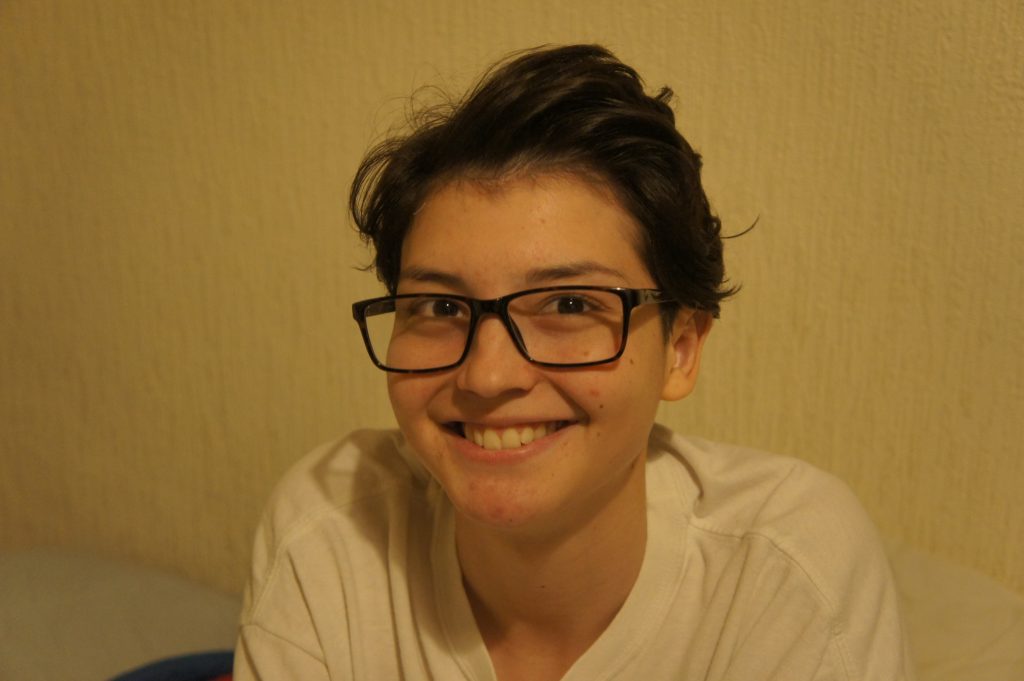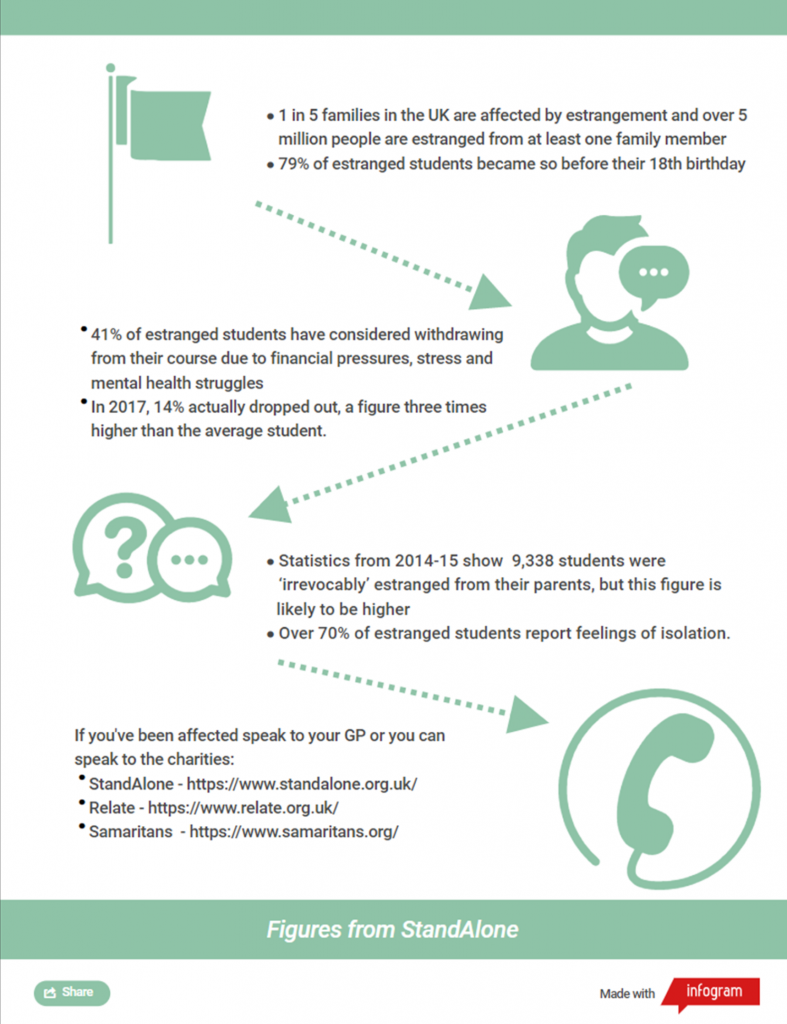
“The only way that I could really describe it is that, it felt as if I was standing on the side of a cliff and my parents just turned around and pushed me.”
Tayla Middleton sits in the living room of her house in Lower Broughton; its the first time she has abandoned her usual affable tone.
“I got to the point where it was at Christmas and I wasn’t happy. Like I thought that when I leave them the situation would be different, I’d be happy.
“But it just doesn’t work like that. It’s not something where you can just leave.”
The 23-year-old is legally estranged from her parents, having voluntarily and intentionally distanced herself from them over this time two years ago.
The charity StandAlone states one in five families in the UK will be affected by estrangement, with over five million people deciding to cut contact with at least one family member.
“It was years and years, my entire life, of emotional, physical and psychological trauma and abuse,” adds Tayla.
“And it was Christmas and I was debating for weeks with myself, with my friends, asking everyone I knew, ‘What should I do?’ I didn’t know if I wanted to go home for Christmas.
“I ended up going home and it was such a terrible situation that I couldn’t manage anything after that. After being home for less than a week, it’s one of the worst experiences I’ve ever had.”

After returning to campus in January, Tayla’s lecturer got her in touch with the university’s help group PAUSE – an invite-only safe space for ‘people at university separated or estranged’.
“I went to see my tutor and I spoke to her and I broke down and told her everything,” she says.
“I sat there and she was incredibly kind and caring and professional and offered me a lot of advice. She offered me counselling that I went to, I went to the Doctors afterwards.
“Then I actually started the application to become estranged and about two weeks later I was legally estranged from my parents.
“I will always say it was the best decision I made in my life. I could feel what I wanted to feel, I could do what I wanted, I could see, say, everything was my choice. It was like this freedom that I never had.”
Having a supportive & loving family behind you at university can make such a difference. There are thousands of students who are estranged from their families in the UK going it alone. I stand with all these brave students this #essc week & every week! #WithEstrangedStudents pic.twitter.com/jDjq8OUTkn
— Dr Becca Bland (@beccablandish) November 25, 2019
Research by Unite Students found 65 per cent of respondents who are estranged consider themselves to have a disability, impairment or long-term health condition. While, 29% of estranged students reported having a mental health condition.
Furthermore, a survey of estranged students by StandAlone in collaboration with the Student Loans Company found that 14 per cent of those who responded had suspended or deferred their current course of study; and 27 per cent had considered doing so.
Tayla smiles briefly, she then hesitates before leaning forward.
“I still think there’s definitely inklings of bad memories, flashbacks. Especially now, it’s Christmas, there’s holidays in two weeks and everyone is going home,” she says.
It’s estranged student solidarity week!
If your relationship with your family has broken down, and you’re going it alone, follow #withestrangedstudents for info, advice and inspiration.
Find out more about the charities and organisations available here?https://t.co/b19aaFd1kb— UCAS (@ucas_online) November 25, 2019
Thankfully, there are plenty of outlets available to her, she attends up to two group therapy sessions a week with PAUSE, while remaining in frequent contact with StandAlone.
“A lot of the time estrangement is compared to bereavement, because although that person isn’t dead, you’re losing them, and it does hurt, it does.
“So, I felt like it was really nice to be able to connect with people that know what you know. And feel what you feel and have experienced what you’ve experienced.
“It got 100% better, 1000% better, everything’s got so much better. I’m happy, I’m confident, I’m very strong,” and with that, Tayla returns to smiling.
-
StandAlone – https://www.standalone.org.uk/
-
Relate – https://www.relate.org.uk/
-
Samaritans – https://www.samaritans.org/















Recent Comments